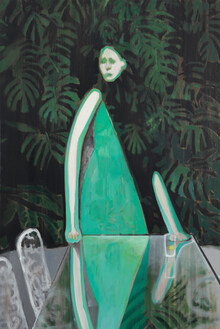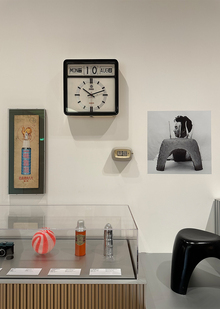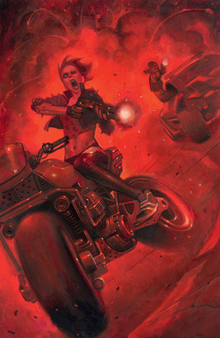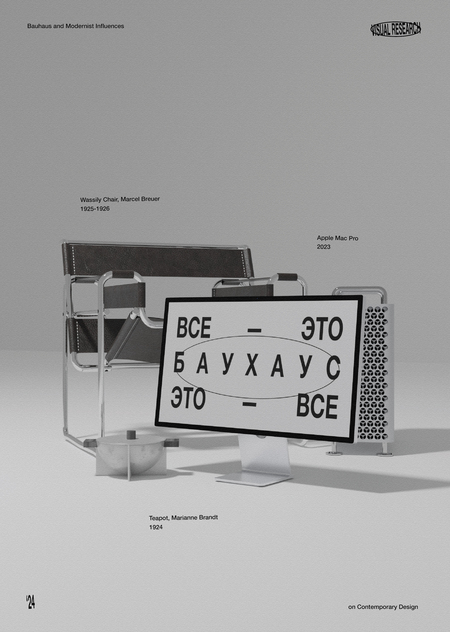
Bauhaus and Modernist Influences on Contemporary Design
Table of Contents.
1. Introduction 2. Electronics 3. Furniture 4. Architecture 5. Graphic Design 6. Conclusion 7. Reference List
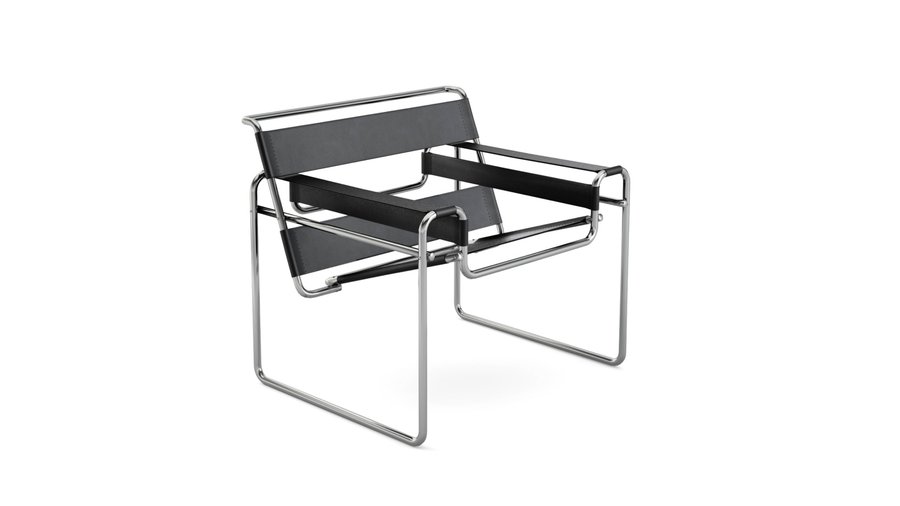
The Wassily Chair, Marcel Breuer, 1925-1926
Amongst the countless art movements in history occurring and dying out, bauhaus, despite being so short-lived, can peraphs be named one of the most pertinent and influential out of all.
The original principals of Bauhaus, a school built on the union of both art and craft, are still considered as the basis of contemporary design: minimalism, utilitrianism, practicality and functionality.
Bauhaus was the closest to come to a modern understanding of commercial design — a joint force of skill and vision, where one does not overshadow the other, but every creation is conceived with a purpose.
In the fast-developing capitalist world, elitist aestheticism paled in comparison with the mass-produced conventionality. Bauhaus brough art to mundane objects, highlighted the human experience in the most primitive of interactions, but most importantly, made art come to the ordinary person, and ensured that they would understand it.
Nowadays, art in singularity devoid of function remains encapsulated in scarce spaces — museums, galleries, workshops. The vitality of user experience in our world and the ubiquity of interaction paved a way to incorporate art directly into our life, displacing the need for form without function, exactly what the disciples of Bauhaus stood for.
Almost every man-made thing around us is a remnant, or, rather, a successor to the dynamic between a human and an object that Bauhaus had established. We are still infatuated with Bauhaus, and this loves ranges from the admiration of the sleek aesthetics to the semantical understanding of what design truly is.
Consequently, this research strives to underline the undying connections between Bauhaus and contemporary design of various fields, both direct and indirect.
Technology and Electronics.
Apple Pro Display XDR, 2019
In the 2020s, one practically cannot find any piece of modern electornics not inspired or influenced by the styles of Bauhaus: metalic finishes, clean angles, visual minimalism, thoughtful use of color and monochrome, but, mainly, function over form.
WG 24 Table Lamp, Wilhelm Wagenfeld, 1924 and Apple iMac G4, 2002
Apple has quickly become the single leading force behind contemporary minimalist design: there is no company today that does not draw its inspiration from Apple. Its roots trace back to modernist beginnings with Bauhaus as the pivot point of inspiration.
S285 Desk, Marcel Breuer, 1935 and Apple Mac Pro, 2011
Apple Mac Pro, 2023
In its first decade of existance, Apple was directly influenced by Braun, a 1920s German company, the first electronic company to heavily rely on Modernist aesthetics.
Braun T3 Radio, 1958 and Apple iPod, 2001
Braun T100 Radio, 1963
Braun Atelier TV, 1962 and Apple iMac G3, 1998
Just like the artists of Bauhaus, though scarcely, Apple did not fear to intentionally use color as well. Minimalism in color was expressed mainly by using isolated color schemes and basic, recognizable tones.
Baby Cradle, Peter Keler, 1922 and Apple iMac G3 in various colors, 1998
Nesting Tables, Josef Albers, 1926-1927 and Apple iMac in various colors, 2021
Instead of the norm, color became a stylistic choice — a deliberate decision to include something outside of the neutral achromatics.
Teapot, Marianne Brandt, 1924 and Apple iPhone 3G, 2008
The iPhone, virtually the embodiment of minimalism, perfectly captures the intricate duality of Bauhaus: spotless metalic surfaces create an image as solid as it is gossamer; as sturdy and powerful as it is lightweight and almost fleeting.
Laccio Low Table, Marcel Breuer, 1925 and iPhone 15 Pro Max, 2023.
Apple was the one to bring back metalic finishes and steer away from dull plastics beloved by IBM and Sony. Therefore, today, one associates metalic electornics with high-tech, durability and class.
Furniture and Interior Design.
Mostly known by its furniture, Bauhaus forever changed the landscape of interior design — stylish, functional, but now meant for mass production, Bauhaus brought style and class to the everyday house.
Lounge Chair, Charles and Ray Eames, 1956 and Ikea HAVBERG lounge chair
Ikea, a Swedish company founded in 1943, quickly took over the spot of mass produced furniture — what Bauhaus always wanted to achieve — remaining almost the only international supplier of interior styles. Designers at Ikea were never afraid to reference works of Bauhaus and modernism in their catalogues.
Herman Miller, Black Leather Eames Lounge Chair & Ottoman
Donald Deskey, Dining Table and Four Chairs, 1930 and Ikea TORSBY / TOBIAS table and chairs
B32 Chair, Marcel Breuer, 1928, Ikea TOBIAS chair
Barcelona Chair, Ludwig Mies van der Rohe, 1929, Ikea POANG armchair
When curated aesthetics became a commodity, Bauhaus styles quickly rose to the niche of luxury goods — modern iterations of Bauhaus can range from a couple thousand to tens of thousand dollars on SSENSE and Herman Miller. Outside of Ikea, Bauhaus-inspired furniture is still far from being accessible to an ordinary person.
Laccio Low Table, Marcel Breuer, 1925 and Ferm Living, Beige Level Side Table
WG 24 Table Lamp, Wilhelm Wagenfeld and Louis Polsen, Blue Panthella 320 Table Lamp
Red Balloon, Paul Klee, 1937 and Ikea BRONDEN low carpet
VITRA Panton Junior Chairs in various colors
B9 Nesting Tables, Marcel Breuer, 1925-1926
Architecture and Exterior Design.
Bauhaus Dessau, Walter Gropius, 1925-1926
Bauhaus architecture was the true epitomy of rational design: functional geometric shapes, use of steel, glass and concrete, smooth façades. It is still the primary way we build today.
Josephine M. Hagerty House, Walter Gropius, 1938 and Home VVV, Francisca Hautekeete
Bauhaus architecture is especially vivid in the contemporary private housing industry, with celebreties and influencers opting for houses inspired by the works of Walter Gropius.
Glass blocks in the Gropius House, Walter Gropius, 1938 and Maison Hermes, Renzo Piano, 1998-2001
Gropiusstadt, a district in Berlin, was conceived by Walter Gropius with a dream of someday becoming a reality for all people across the globe — a close-knit functional community consisting of a myriad apartments inside numerous blocks. Gropius' legacy lives on in most urban cities around the world, from Moscow to New York and Tokyo.
A residential building in Gropiusstadt, Walter Gropius and a residental building in Vladivostok, PIK, 2024
A sky-high view of Gropiusstadt, 2021
From minimalist aparment complexes to innovative mixed-use developments, the idea of compact living spaces designed for comfort and practicality not only endures, but reaches new heights.
A sky-high view of Moscow, 2022
Graphic Design.
Even though the notion of widespread graphic design was only emerging at the times of Bauhaus, students and teachers managed to establish a number of rules in the realms of typography and composition.
Grobe Kabel / Nach Zeichnung von Rudolf Koch, Rudolf Koch, 1928
Type specimen for Futura, Paul Renner, 1927 and Gotham Typeface, Tobias Frere-Jones, 2000
Most contemporary typefaces still rely on font family structure outlined by the typography of Bauhaus — Graphik and Gotham amongst those.
Staatliches Bauhaus in Weimar, Herbert Bayer, 1923 and City by Landscape, Thies Schröder, 2013
Bauhaus relied on the use of sans serif and the occasional akzident and strayed away from more dated serif types that were mostly present in newspapers and magazines prior to modernism. Nowadays, it is considered common courtesy to use serif typefaces in situations where heavy stylization seems unnecessary
Proof sheet for the Universal alphabet, Herbert Bayer, 1926 and the Miu Miu logotype
Conclusion.
Even though the worlds of art and design never came to ideals that founders of Bauhaus believed in so dearly, many of their innovative principles have become widespread common sense in design fields. It is unfathomable to imagine a contemporary world of design where Bauhaus did not exist in retrospect.
— https://www.smow.com/pics/kn-019-000/knoll-intl-wassily-varianten-leder-schwarz.jpg (Accessed 11/05)
— https://analogue-amsterdam.com/cdn/shop/files/BraunT1000CD.jpg?v=1690633767 (Accessed 11/05)
— https://macprola.com/wp-content/uploads/2018/02/products-MacPro_ba74185f-abb9-4931-8d8a-5093d8f0e2f6.jpeg (Accessed 11/05)
— https://i0.wp.com/www.future-forms.com/wp-content/uploads/1957/09/Braun_T3_radio.jpg?ssl=1 (Accessed 11/05)
—https://www.apple.com/newsroom/images/product/ipod/standard/Apple-iPod-end-of-life-iPod-first-generation_carousel.jpg.large.jpg (Accessed 11/05)
— https://www.braun-hifi-forum.de/userpix/247_198508_der_tv3_03_1.jpg (Accessed 11/05)
— https://applespbevent.ru/content/images/2022/08/iMac-G3.jpg (Accessed 11/05)
— https://shop.bauhaus-movement.com/media/6921/catalog/thonet/b%2097/thonet-beistelltisch-marcel-breuer-b-97-set.jpg (Accessed 11/05)
— https://store-apple.msk.ru/image/cache/catalog/tovary/imac/mac-pro/nastolniy-kompyuter-apple-mac-pro-2023-800x800.jpg (Accessed 11/05)
— https://www.norrmalmsel.se/pub_images/original/wa24_krom.jpg (Accessed 11/05)
— https://cdn.connox.com/m/100030/135291/media/tecnolumen/neu-2024/Tecnolumen-Wagenfeld-Leuchte-WG-24-mit-Klarglasfuss.jpg (Accessed 12/05)
— https://i0.wp.com/sixcolors.com/wp-content/uploads/2020/10/imac-g4-montage.jpeg?ssl=1 (Accessed 12/05)
— https://www.knoll.com/static_resources/images/products/catalog/eco/parts/50T1/50T1-(PC)_F2_FZ.jpg (Accessed 12/05)
— https://store.storeimages.cdn-apple.com/4668/as-images.apple.com/is/iphone15pro-digitalmat-gallery-4-202309? (Accessed 12/05)wid=728& hei=666& fmt=jpeg& qlt=90&.v=1693081542280
— https://store.storeimages.cdn-apple.com/8756/as-images.apple.com/is/imac-24-og-202310wid=1200&hei=630&fmt=jpeg&qlt=95&.v=1697142273063 (Accessed 12/05)
— https://static.dezeen.com/uploads/2018/10/nesting-tables-albers-sq-1.jpg (Accessed 12/05)
— https://support.apple.com/library/content/dam/edam/applecare/images/en_US/displays/prodisplayxdr/set-up-pro-display-xdr-hero.jpg (Accessed 12/05)
— https://img-api.mac4ever.com/1200/0/45f761e414_imac-g3.png (Accessed 12/05)
— https://www.smow.com/pics/tt-022-000/tecta-wiege-klein-01_zoom.jpg (Accessed 12/05)
— https://shop.bauhaus-movement.com/media/4905/catalog/thonet/tische/s%20285/thonet-schreibtisch-marcel-breuer-285-1-00-2.jpg (Accessed 12/05)
— https://i.ebayimg.com/images/g/tNgAAOSwlPliXsBx/s-l1200.jpg (Accessed 12/05)
— https://media.sweetwater.com/api/i/q-82__ha-a4026f88827ebdae__hmac-754c4dda8b6f665e1c15e5d93bfb3f1be8826f9b/images/items/750/MacPro30-8-large.jpg (Accessed 13/05)
— https://images.mobilefun.co.uk/graphics/productgalleries/21995/b.jpg (Accessed 13/05)
— https://static.dezeen.com/uploads/2018/10/bauhaus-barcelona-chair-sq-1.jpg (Accessed 13/05)
— https://static.italiandesignclub.com/uploads/2019/05/Marcel_Breuer_Cesca_Gavina_Knoll_1-1.jpg (Accessed 13/05)
— https://www.ikea.com/us/en/images/products/tobias-chair-brown-red-chrome-plated__1126419_pe875739_s5.jpg (Accessed 13/05)
— https://grshop.com/media/catalog/product/cache/3cfccc64417aafdd087daca85a2c8529/l/o/lounge_chair_2_3_7.jpg (Accessed 13/05)
— https://d6qwfb5pdou4u.cloudfront.net/product-images/590001-600000/596467/148117078871f0ae292ca857a60814de02ddd2d839/1500-1500-frame-0.jpg (Accessed 13/05)
— https://cdn.3dmodels.org/wp-content/uploads/Furniture/IKEA/115_IKEA_Havberg_Armchair_And_Ottoman/IKEA_Havberg_Armchair_And_Ottoman_1000_0001.jpg (Accessed 13/05)
— https://d2rbyiw1vv51io.cloudfront.net/web/ikea4/images/846/1084642_PE859748_S5.jpg (Accessed 13/05)
— https://api.interior.ru/images/DESIGN/NAME/Charles_Ray_Eames/60th-anniversary-upholstery-vitra.jpg (Accessed 13/05)
— https://i.pinimg.com/736x/bf/46/f3/bf46f3f69d395fb7f3ec85aac971d222.jpg (Accessed 13/05)
— https://img.ssensemedia.com/images/f_auto/232211M809007_3/herman-miller-black-leather-eames-lounge-chair-and-ottoman.jpg (Accessed 13/05)
— https://www.hautekeete.be/media/banner-extra-large/915-21_fh_heusden_lr_240412_5642.jpg (Accessed 13/05)
— https://www.hautekeete.be/media/banner-extra-large/767-19_fh_nieuwerkerke_281022_1496.jpg (Accessed 13/05)
— https://www.berlin.de/binaries/asset/image_assets/5864574/source/1600157148/1000x500/ (Accessed 14/05)
— http://architecture-history.org/architects/architects/GROPIUS/PIC/JO03.jpg (Accessed 14/05)
— https://parametric-architecture.com/wp-content/uploads/2023/08/Dessau-Bauhaus.jpg (Accessed 14/05)
— https://www.archiscene.net/wp-content/uploads/2018/08/maison-hermes-2-730x1102.jpg (Accessed 14/05)
— https://cdn.pik.ru/content/feed/2023/10/06/1-16h9_28783289e3c9caaacf53ea6cc9ca7db8.jpg? _ga=2.111244610.77963286.1715773150-717121454.1715773150 (Accessed 14/05)
— https://www.mos.ru/static/images/pic_81617.jpg (Accessed 14/05)
— https://www.researchgate.net/publication/347649220/figure/fig6/AS:1010720644821004@1617985988596/Herbert-Bayers-Universal-Type-1926.png (Accessed 14/05)
— https://exhibitions.letterformarchive.org/bauhaus/media/pages/artworks/type-specimen-for-futura/a8a01b7bed-1705444558/lfa_type_1037_001_r1.png (Accessed 15/05)
— https://upload.wikimedia.org/wikipedia/commons/thumb/4/4e/GothamSpec.svg/1200px-GothamSpec.svg.png (Accessed 15/05)
— https://letterformarchive.org/wp-content/uploads/legacy/Kabel.002.jpeg (Accessed 15/05)
— https://yt3.googleusercontent.com/ytc/AIdro_ntFFhQqFUujuV_4nOWiIcZymE6SDkCbxjtEN5qy8jKh-k=s900-c-k-c0x00ffffff-no-rj (Accessed 15/05)
— https://upload.wikimedia.org/wikipedia/commons/c/c0/StaatlichesBauhaus_Vorderdeckel.jpg (Accessed 15/05)
— https://www.typeroom.eu/assets/original/photographs/scanner/159/201501/HORT_City_by_Landscape_011.jpg (Accessed 15/05)

